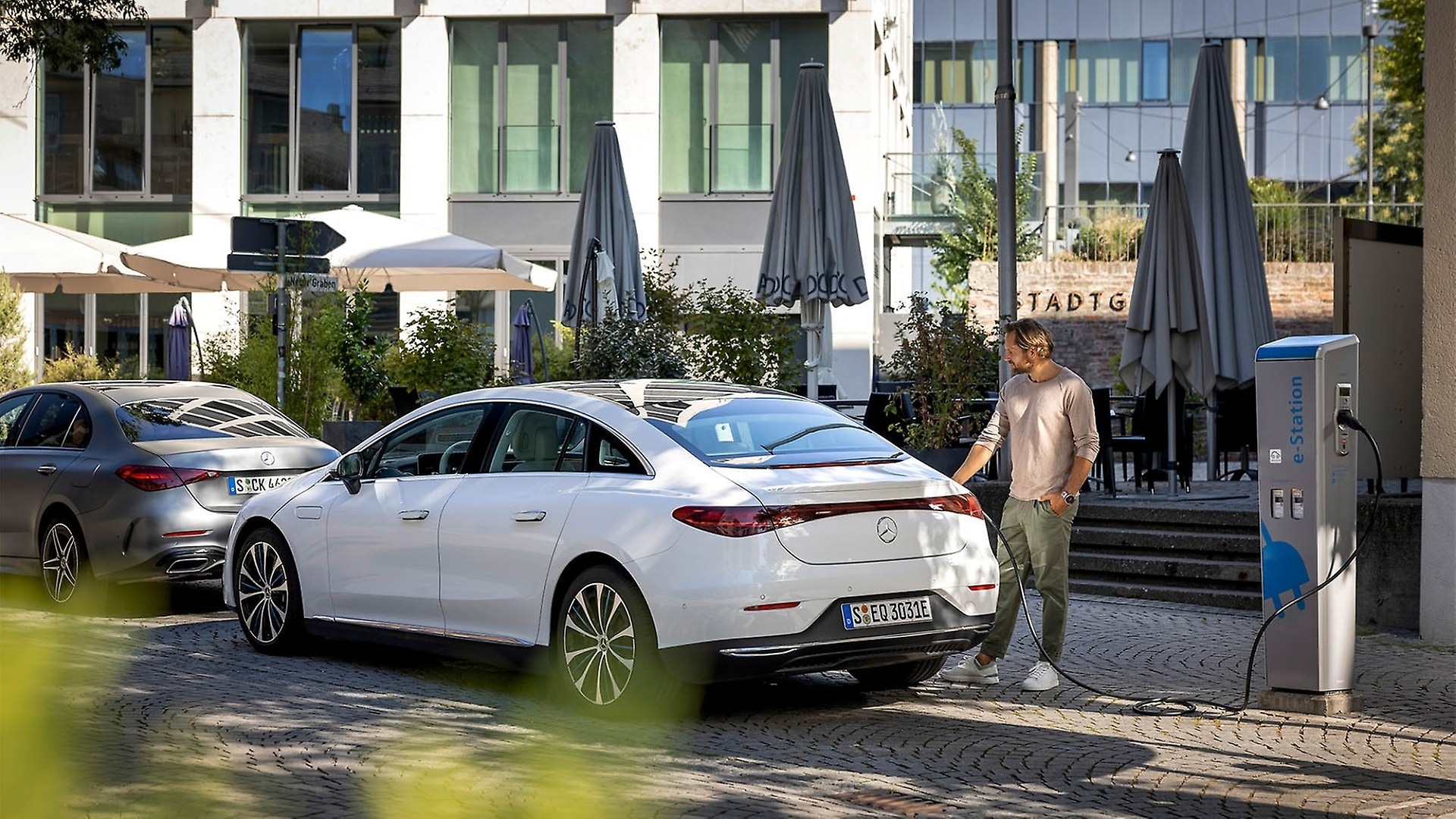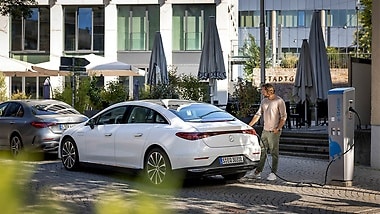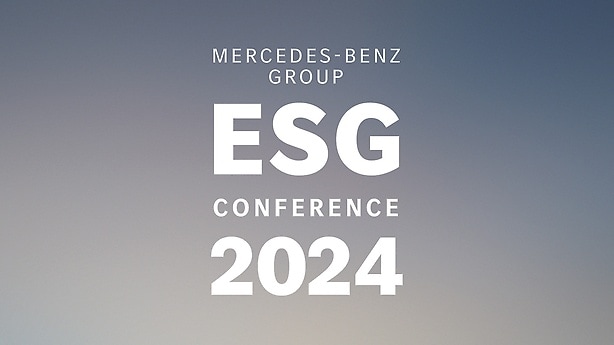The Mercedes-Benz Group wants to create sustainable value – economically, ecologically and socially. This is one of the central guiding principles. It applies not only to the Group’s own products and production sites, but also encompasses the Group’s upstream and downstream value chain. The Mercedes-Benz Group translates this approach into its sustainable business strategy.
One of the most important goals of the Mercedes-Benz Group is decarbonization. The Group has firmly established this topic in its sustainable business strategy. In the Mercedes-Benz Group’s strategy, this goal is reflected in the “Ambition 2039”. By 2039 the entire Mercedes-Benz new vehicle fleet is to be net carbon-neutral across all stages of the value chain¹.
The Mercedes-Benz Group has set itself ambitious goals and defined six strategic areas of action and three enablers, or principles -integrity, people and partnerships -for reaching these goals.
¹Net carbon-neutral means not causing any CO₂ emissions and compensating any CO₂ emissions that do occur through certified projects to offset emissions.
ESG Strategy and Targets
ESG disclosure
The necessary transformation to a climate-neutral society requires the transformation of entire industries. We want to actively shape the transformation of the automotive industry and be part of the solution. The second Mercedes-Benz Climate Transition Action Plan outlines how we pursue this task – by setting ourselves ambitious targets and aligning our entire organization and value chain with this path. By 2039, we aim to have a net carbon-neutral Mercedes-Benz new vehicle fleet across all stages of the value chain.
The Mercedes-Benz Group Climate Policy Report provides a comprehensive overview of the company’s position on climate change and the measures taken to reduce greenhouse gas emissions. By issuing the Mercedes-Benz Group Climate Policy Report 2023 the Group wants to be transparent about its positions and activities demonstrating its commitment to the climate protection goals.
In April 2015, the G20 Finance Ministers and Central Bank Governors asked the Financial Stability Board (FSB) to review how the financial sector can take account of climate-related issues. The FSB established the Task Force on Climate-related Financial Disclosures (TCFD) to develop voluntary, consistent climate-related financial disclosures that would be useful to investors, lenders, and insurance underwriters in understanding material risks.
The TCFD’s members were chosen by the FSB to include both users and preparers of disclosures from across the G20’s constituency covering a broad range of economic sectors and financial markets. As one of six industrial firms, Mercedes-Benz Group contributed to the development of the recommendations that were published in June 2017.
Sustainability Accounting Standards Board (SASB) Standards guide the disclosure of financially material sustainability information by companies to their investors. Available for 77 industries, the Standards identify the subset of environmental, social, and governance issues most relevant to financial performance in each industry.
The Mercedes-Benz Group achieved an A- rating in 2023 in the disclosure of its climate-related activities in the CDP climate questionnaire. In addition, the Group has reported on water-related activities for the second time in the separate CDP water questionnaire and subsequently achieved an A- rating.
CDP is a global non-profit that runs the world’s environmental disclosure system for companies, cities, states and regions. Over 24,000 organizations around the world disclosed data through CDP in 2023, with more than 23,000 companies – including listed companies worth two thirds global market capitalization - and over 1,100 cities, states and regions. Fully TCFD aligned, CDP holds the largest environmental database in the world, and CDP scores are widely used to drive investment and procurement decisions towards a zero carbon, sustainable and resilient economy.
For Mercedes-Benz, respect for human rights is a fundamental component of our activities. In the Raw Materials Report, we report on our activities to respect human rights in raw materials supply chains and our progress within the framework of our sustainable corporate strategy.
By 2025, we want to assess 70 percent of the 24 raw materials we identify. By 2028, appropriate measures for the prevention, reduction or termination of human rights violations should be defined for all risky raw materials.
The first "Raw Materials Report" will publish the assessments for the first six raw materials aluminum, cobalt, lithium, mica, tin and tungsten. The report will be regularly updated and supplemented with analyses of further raw materials.
ESG policies and standards
The document can be downloaded from our Supplier Portal.
The letters ESG stand for Environment, Social and Corporate Governance. These non-financial criteria are used when assessing investments or business practices. ESG information is used by players in the financial markets, such as pension funds or asset managers, as a complement to their fundamental economic analysis work.
Green Finance
More and more investors are making their investment decisions on the basis of criteria such as environmental protection, social conduct and fair corporate governance. They want to invest in companies with a sustainable business strategy. With our Green Finance Framework, we have created the conditions for sustainable finance instruments such as green bonds and green loans.
This article was last updated in June 2024.






















